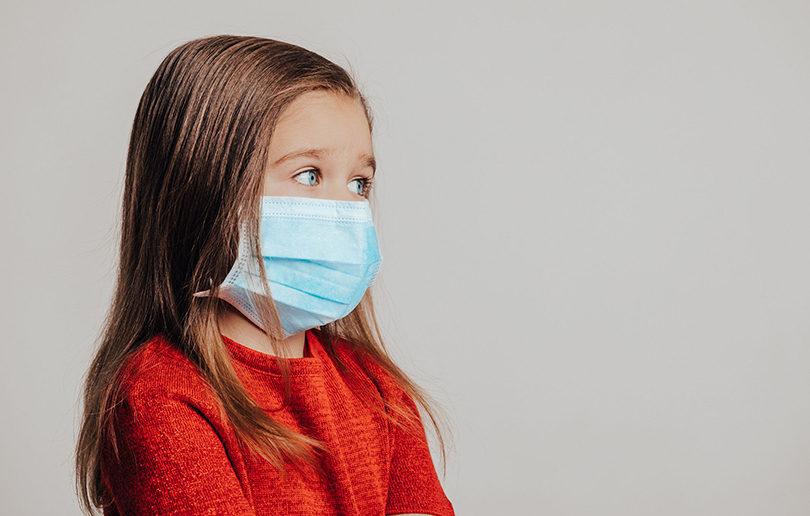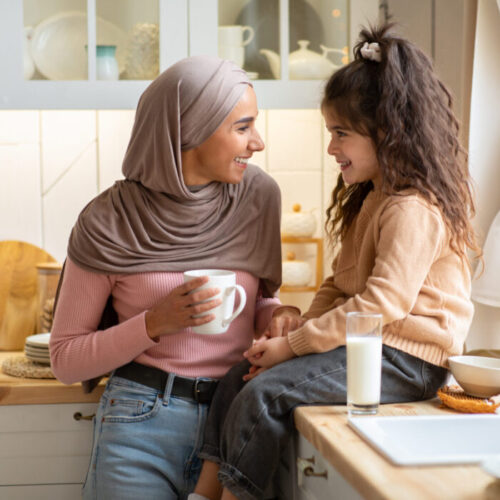How to explain the coronavirus to your children
We hear from Dr. Ammar al Bana, Consultant Child and Adolescent Psychiatrist and Head of the Child and Adolescent Mental Health Centre at Al Jalila Children’s Specialty Hospital, to learn more about how best to tackle the topic of coronavirus with your little ones.

Amid the coronavirus outbreak, many parents are confronted with questions from their children. Some questions are spoken, whereas some other questions are buried below the surface and present in their anxious tone-of-voice and facial expression.
“Will I get the virus?” “Is it really severe?”
These questions arise from scattered information that they receive either directly from friends, teachers and media, or indirectly through hearing about closure of schools and public events. This may lead to fear and uncertainty, and kids differ on how they process and react this depending on factors such as their age and cognitive, psychological abilities.
A parent’s role is undoubtedly crucial as they are the anchor points for their kids in the midst of uncertainty. But how can parents appropriately answer such questions? How can they pass on reliable information without causing anxiety and fear? These are some helpful tips on approaching these questions.
Be calm.
If you as a parent yourself feel anxious and uncertain, it is likely that your child will pick up this and possibly react with more anxiety. Kids have quite strong sensors for parental feelings and internalize this quickly. Hence, make sure that you get the information from reliable sources, preferably one reliable source, and check it no more than once a day. Reliable sources include official announcements from the Ministry of Health and Prevention. This is specifically important in the era of widespread of social media, that largely includes inaccurate information and often fake news that is sometimes deliberately engineered to trigger fear and lead to irrational behaviours.
Open-up the topic.
It is quite likely that your child has already heard about COVID-19, so do not hesitate to open up this topic. It is better that they get reliable and reassuring information from you as a parent.
Assess what they already know.
A good starting point is to ask them about what they already know, and how they got this information. This will give you a great opportunity to hear about the information they received, the source of information, their interpretation and emotional state. When doing so, it is essential that you validate their feelings and avoid minimizing their fears. Give them a safe space with you.
Use age appropriate language.
What you tell your kids, and how you communicate this, varies widely depending on their age. Pre-schoolers need to hear basic reassuring messages avoiding technical details. School age children may be able to grasp more information about the outbreak. However, it is essential that you avoid talking about people dying. If they are worried about getting sick, you may remind them of the last time they got very sick and how their bodies overcome the illness. Communicate a reassuring message thatmost intelligent and smartest doctors and scientists on earth are working non-stop to stop the spread and find a treatment.
Monitor screen time.
Anxious kids sometimes attempt to reassure themselves by searching, and end up feeling much more anxious due to inaccurate and exaugurated stories and pictures online. If they are doing so, remind them to check one reliable source, and inform them about the spread of fake news. It might be useful to search reliable sources together. Be a good model, avoid reading media posts and sharing unreliable information. Close the TV and do a fun joint activity instead. (Try these printable activity sheets, or perhaps join in on a family workout?)
Give them tools.
Give them some useful skills then can use to prevent the spread of the virus. The most effective is proper hand hygiene and you can make this fun by practicing together, singing while hand washing, or have them teach their siblings. They will feel empowered.
Be compassionate and keep the conversation going.
Finally, address this with compassion and make them feel that you are always there for them. They should come back to you at any time if they have more questions. Keep your heart open.
To learn more about how to cope with the coronavirus outbreak, click here.











Comments